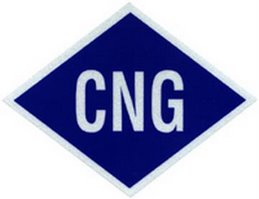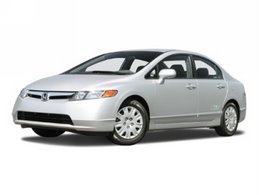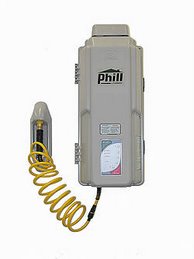| USA The following bulletin was issued by NGVAmerica and the Clean Vehicle Education Foundation(CVEF). Though aimed at the US market, the safety message is relevant to most other markets as well. As gasoline and diesel prices continue to rise, many people are considering converting their car or light truck to run on compressed natural gas (CNG). CNG is a clean, inexpensive (currently selling for less than half the cost of gasoline) domestic fuel. Best of all, it uses zero imported (or domestic) petroleum. And government rebates are available to help with the cost of conversion and to further lower the cost of CNG fuel. But conversion from gasoline to CNG should not be done by unqualified technicians, using unapproved conversion kits or unsafe high-pressure gas cylinders. The US Environmental Protection Agency (EPA) has rules concerning the manufacture, sale and installation of alternative fuel engine conversion systems. The California Air Resources Board has similar and even more stringent emission rules for conversions in that state. Only EPA and/or CARB-certified conversion systems are permitted to be installed on vehicles. While a variety of non-certified systems are sold on the Internet and/or offered by some automotive shops, EPA has taken the position that installation of these systems is "tampering with a federally approved emission control system", a federal violation punishable by a substantial financial penalty. Installation of non-certified systems can also cause a vehicle to fail emissions inspection.
Because of the technical difficulty and the expense of EPA and CARB certification, certified conversions are only available for a limited number of engine families and applicable vehicle models. An up-to-date list of all currently available EPA- and CARB-certified engine retrofit and repower systems is available at NGVAmerica. New Honda Civic GX CNG vehicles, built in the USA, are also available in some states (see Honda).
Installation of an engine conversion package and fueling system may be done when the vehicle is first purchased or after it has been in service. EPA and CARB require that converters provide appropriate documentation and training to installers of their systems. Installation by non-qualified installers is illegal and could damage the retrofit equipment or the engine (or both), compromise vehicle performance, or render the vehicle unsafe to operate. No EPA- or CARB-certified engine conversion systems are sold to untrained/unapproved installers.
CNG conversions SHOULD NOT be performed by unqualified technicians! Properly installed CNG systems are safe and economical, with the vehicle operating almost exactly like a gasoline vehicle. However CNG systems rely on high-pressure compressed natural gas for fuel, and high-pressure gases require specialized components and technical skills for installation. Conversions should be done according to the National Fire Protection Association's Vehicular Fuel Systems Code (NFPA 52).
CNG converters and vehicle owners are reminded that CNG cylinders, often the most expensive component of the fuel system, must carry labels showing they meet the applicable Department of Transportation standard (FMVSS 304) by the symbol "DOT" on the label. The label will show an expiration date, after which the cylinder may not be safely used. Cylinders should also be inspected for safety every three years or 36,000 miles, whichever comes first (see www.cleanvehicle.org for more information). Converters and vehicle owners should have documentation that this safety inspection has been done.
Detailed answers to "Frequently Asked Questions About Converting Vehicles to Operate on Natural Gas" are available from NGVAmerica. |



2 comments:
What a bunch of crap, EPA approved Kits, CARB approved kits, WHO DO YOU GUYS THINK YOUR FOOLING ? in most cases the approved kits are made BY THE SAME MANUFACTURER, they just have a "sticker" attached, a very special sticker, a $12,000 dollar sticker, when I look at the EPA and CARB, what I see is corruption, graft, and government bureaucracy at its worst. It's no wonder that private ownership of CNG autos in CA is less than 1 per million, while Utah, a state thats made it easy and affordable has 800% more CNG cars on the road. SHAME ON CARB.
While I will agree with you that there is too much bureaucracy in the mix, safety is one of those things that shouldn't be compromised. There have been accidents which have killed because tanks were improperly installed and inspected. My contention is that no shortcuts should be taken. You're dealing with 3600 psi systems. That kind of pressure has killed. There is an instance a Year or two ago of a shuttle bus driver in California whose tank was improperly repaired after an accident who was killed by pressure explosion as he attempted to refuel his van. We should make conversions easier and less expensive, but without compromising safety. The fact of the matter is that the cost is a factor of what the converter manufacturers and mechanics want to charge as well as the bureaucratic hurdles. The fact of the matter is, that until CNG conversion becomes more popular, it will be an expensive prospect. When the number of conversion increase, the cost should come down as the law of supply and demand dictates.
Post a Comment